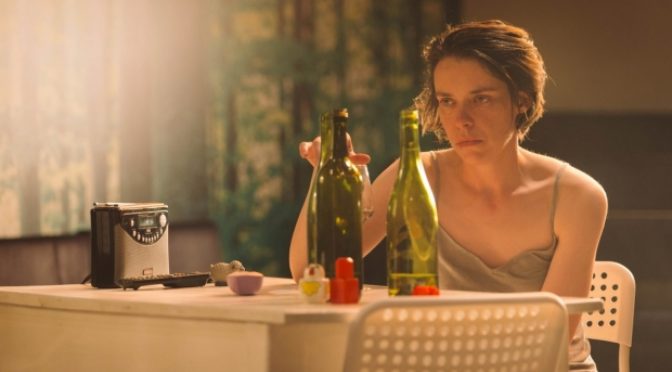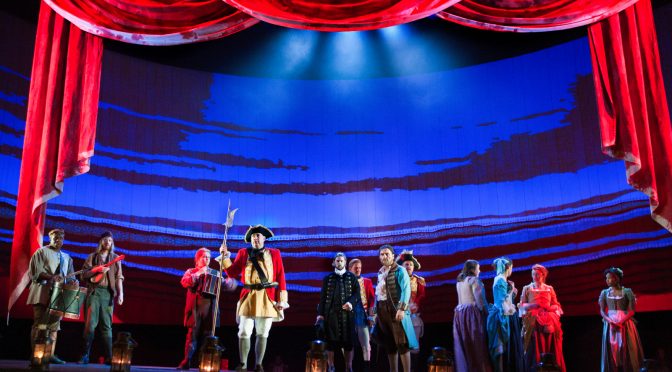It’s never comfortable to fall back on critical clichés, especially when a show is kindly offered during current circumstances, but one is applicable to this production. Although its merits are clear, Magali Mougel’s play, rendered into English by Chris Campbell, is surely lost in translation.
As the titular character struggles with her claustrophobic life – and three children she never wanted to have – there’s a strong tension between post-natal depression and, well, depression full stop. Such a bold look at the expectations and “obligations” women face is bracing. The outcome is not for the faint of heart. And, if the plot is simple, the play’s structure enlivens it enough.
The title role provides a strong part for Caoilfhionn Dunne, who grabs it for its considerable worth and doesn’t allow excuses for her character’s actions. While the role of her husband is less well written, Jonah Russell makes him intriguing. Director Jean-Pierre Baro has clearly worked hard on the scenes of the couple together and these provide highlights.
It’s with two accompanying characters that cracks start to show. Kate Duchêne gets the chance to shine when she performs as Suzy’s infuriated and vicious mother, Madame Storck. But when Duchêne also narrates, and is joined in this task by Theo Solomon, the play’s style starts to grate. Although both Duchêne and Solomon have a strong stage presence, it isn’t clear what these roles add.
Baro’s production has atmosphere (aided by some strong lighting design from Christopher Nairne) and there’s a great moment where the audience helps clear up kids’ toys. But Mougel’s obsession with routine, reflected in quantifying action and an interesting take on muscle memory, leads to too much repetition. The only scene with any humour is of a job interview (another small role that Duchêne does well with), and the constant use of the characters’ full names seems a puzzling affectation. The strange staccato delivery of some lines, presumably also linked to an obsession with repetition, is arresting but again overused and effortful. Suzie Storck ends up intense but also, painfully, self-conscious.
Until 30 June 2020


